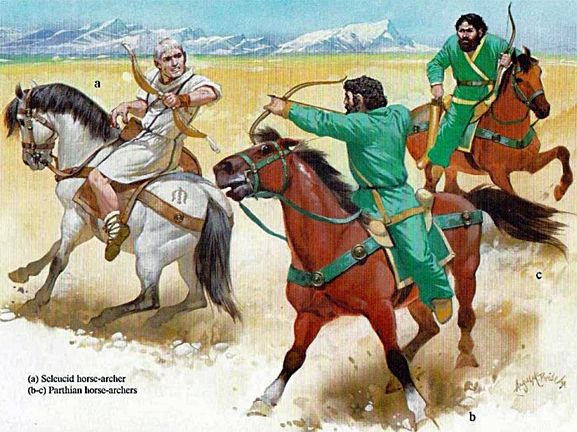
Rise of the Arsacids
Mesopotamia, IraqSeleucid power began to weaken after the defeat of Antiochus III at the hands of the Romans at the Battle of Magnesia which effectively broke Seleucid power and in particular the Seleucid army. After this defeat, Antiochus began an expedition into Iran, but was killed in Elymaïs.The Arsacids then took power in Parthia and declared their full independence from the Seleucid Empire. In 148 BCE, the Parthian king Mithridates I invaded Media which was already in revolt against the Seleucid empire, and in 141 BCE the Parthians captured the major Seleucid city of Seleucia (which was the eastern capital of the Seleucid empire).These victories gave Mithridates control over Mesopotamia and Babylonia. In 139 BCE the Parthians defeated a major Seleucid counterattack, breaking the Seleucid army, and captured the Seleucid King, Demetrius II, thus effectively ending Seleucid claims to any land east of the Euphrates river. In order to recover this territory, Antiochus VII Sidetes, launched a counter offensive against the Parthians in 130 BCE, initially defeating them twice in battle. The Parthians sent a delegation to negotiate a peace agreement, but ultimately rejected the terms proposed by Antiochus. The Seleucid army was then dispersed into winter quarters. Seeing an opportunity to strike, the Parthians, under Phraates II, defeated and killed Antiochus at the Battle of Ecbatana in 129 BCE, and proceeded to destroy and capture the rest of his massive army, thus ending the Seleucids' attempt to retake Persia.
